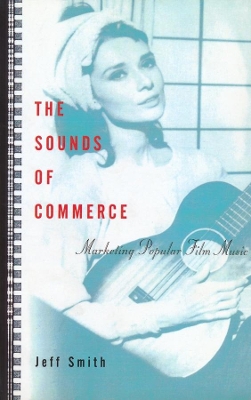Film and Culture
1 total work
The Sounds of Commerce is the first book to present a detailed historical analysis of popular music in American film, from the era of sheet music sales, to that of orchestrated pop records by Henry Mancini and Ennio Morricone in the 1960* to the MTV-ready pop songs that occupy soundtrack CDs of today. Jeff Smith's landmark exploration of film and music cross-promotion investigates the combination of historical, economic, and aesthetic factors that brought about the rise of popular music in the movies.Smith employs a sophisticated yet accessible fusion of musicology, film theory, and social history. In one chapter, a musicological unpacking of the theme song from Goldfinger is used to show how the repeated refrain developed massive cultural appeal, leading to huge singles sales and a ubiquitous tune that most Americans can recognize several decades after the film's release. Other chapters look at how the film and music industries became so heavily intertwined, how soundtrack music progressed from orchestral score to pop song, and how certain soundtracks today become chart successes while their accompanying films generate scant box-office interest.Throughout the text, Smith persuasively argues that the popular film score has been as successful as its classical predecessor at enhancing emotions and moods, cueing characters and settings, and signifying psychological states and points of view.
With The Sounds of Commerce, he challenges film music scholarship to recognize the significance of popular music in modern film.
With The Sounds of Commerce, he challenges film music scholarship to recognize the significance of popular music in modern film.
